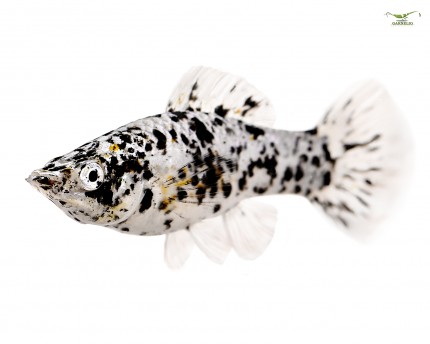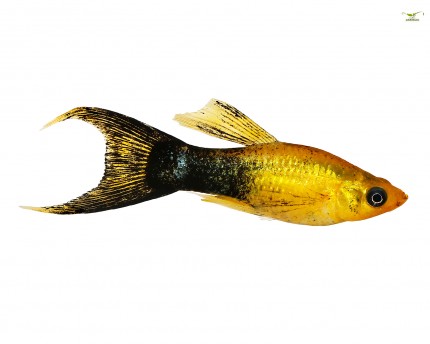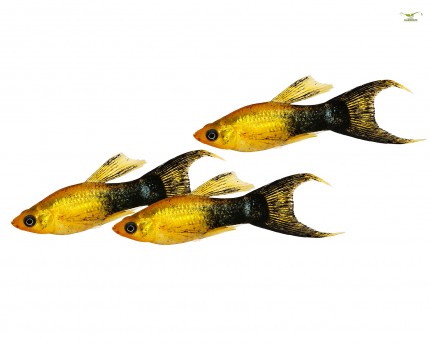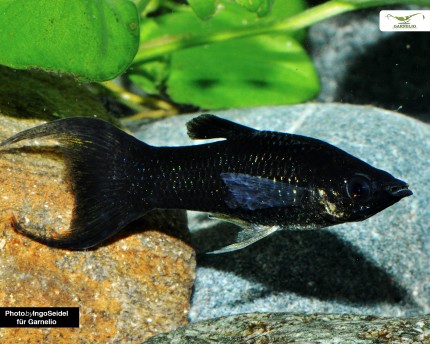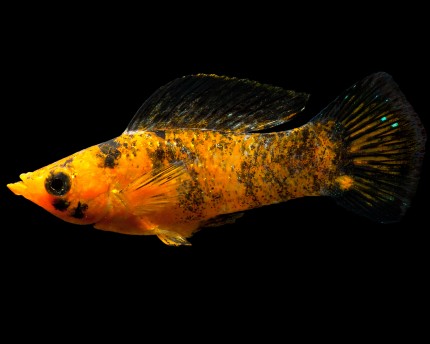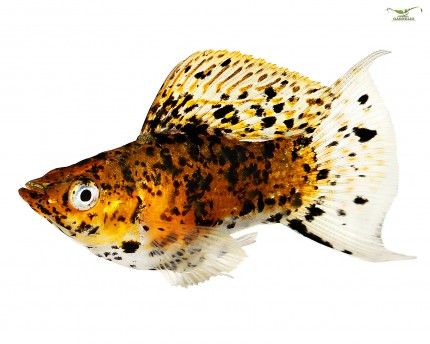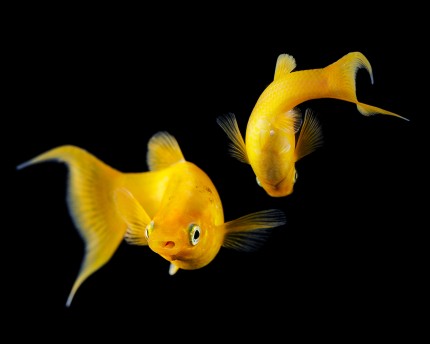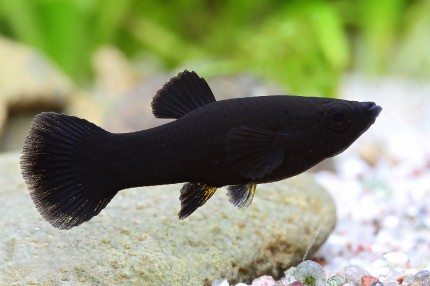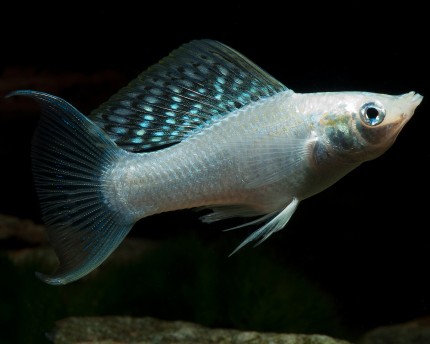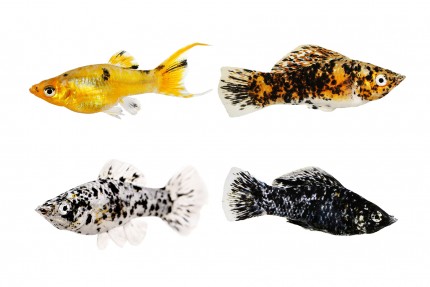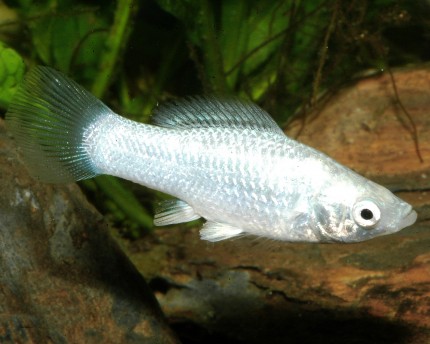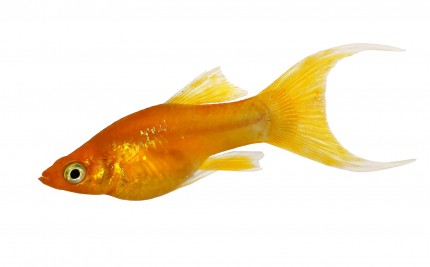Mollies in nature
Live-bearing mollies or pointed mollies (Poecilia sphenops) and balloon mollies (Poecilia latipinna) belong to the family Poeciliidae. These beautiful aquarium fishes belong to the family of colorful guppies and colorful platies, swordtails and sailfishes sailfishes. Mollies and balloon mollies have elegant, not so bright, but still incredibly intense and beautiful colors.
Mollies originate from tropical and subtropical areas of South America. There they live partly in the brackish water of estuaries and in the lower reaches of rivers with hard and warm water in dense plant growth at the edge of the banks. Sharpmouth carps have a slightly superior, conspicuously pointed mouth. They like to stay below the water surface where they eat approach foods, such as insects that land on the surface of the water.
Distinguishing males from females in mollies is not difficult: males have a specially shaped ventral fin that serves as a sexual organ, the gonopodium. Females carry their fertilized eggs in their abdomen for 3 weeks, releasing 50 live fry as the egg cases burst open during the birthing process.
Mollies or Sharpmouth Mollies are social group fish and need the company of at least 10 conspecifics to feel safe and comfortable.
Mollies in the aquarium
The rather large growing mollies and balloon mollies - males reach up to 6, females up to 10 cm length - need an aquarium with hard water and a volume from 100 liters respectively 80 cm edge length. The impressive aquarium fish need evenly warm water, they are very sensitive to fluctuations in water temperature. Water changes should therefore never be made with cold water, but only with tempered water. If you keep the brackish water fish Mollys in fresh water, you should always add some salt, about 1-2 g NaCl per liter of aquarium water is enough. Then the fish are more stable and stay healthy. They should always be kept in hard to very hard water, and are also perfect inhabitants for a brackish water aquarium. The temperature in the aquarium should be 22-28 °C. Probably the best known black mollies are the black mollies closely followed by the silver mollies. However, in our online store you can find many more rather rare molly varieties: the black and silver white Dalmatian Molly, bright golden yellow Gold Mollies, pied Leopard Mollies, Gold Dust M ollies with their color gradient from black to golden yellow, and of course the Leopard Balloon Mollies, which belong to a different species, namely Poecilia latipinna. We also have the beautiful black Lyra Mollies with their long, special fin shape in our online store, as well as the silver-white Lyra Mollies. You can mix different color forms of mollies without hesitation, they perceive each other as conspecifics even with different coloration.
Feeding of mollies and balloon mollies
Live-bearing toothcarps prefer a mixed diet of plants and animals, and so pointed mollies are omnivores as well. In nature they like to eat insects, worms, algae, rotting plant material and the like. In the aquarium they are very happy to eat live food of suitable size and frozen food, soft cooked vegetables such as tomatoes or pumpkin chips, and they also like to take fish food such as flake food or granules. Our NatureHolic Guppyfeed is also suitable for mollies and balloon mollies, as for all live-bearing toothcarps. The soft consistency, which is gentle on the sensitive mouth, the from A to Z well thought out recipe and the high quality ingredients can support health and vitality of these great big ornamental fish, a perfect aquarium food for guppies, platies, mollies and co. A nice variety you offer your mollies with the new Protein Worms and Algae Worms from NatureHolic, which you can also buy in our online store.
Conclusion
If you like it not quite so colorful, but also intensively colored in the aquarium, Mollies are the right choice for a hard water aquarium or for a brackish tank. Mollies are curious and with suitable water values also very robust. Ideal also for beginners in the aquaristics with an appropriately large aquarium! They reproduce well and are very suitable for a community tank with not too shy fish. In our Garnelio Online Shop you can buy a large selection of the popular Mollies and Balloon Mollies from the family Poecilidae, the viviparous toothcarps, for your aquarium.

